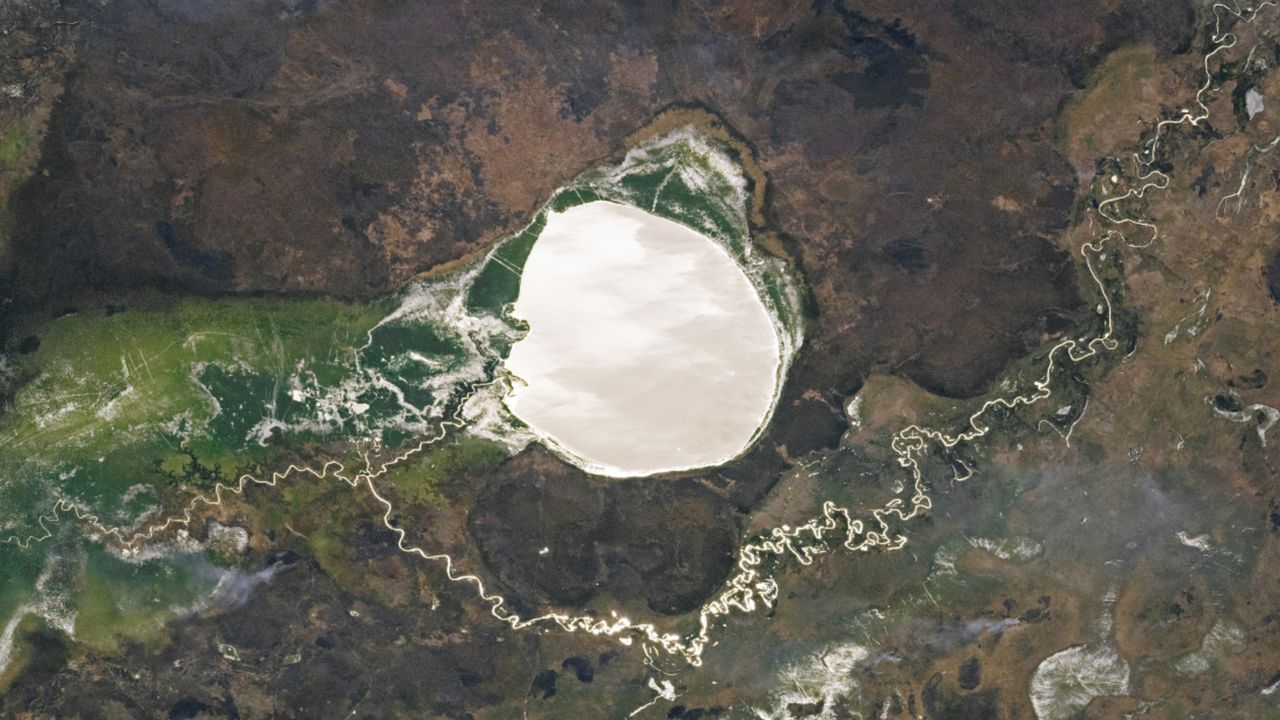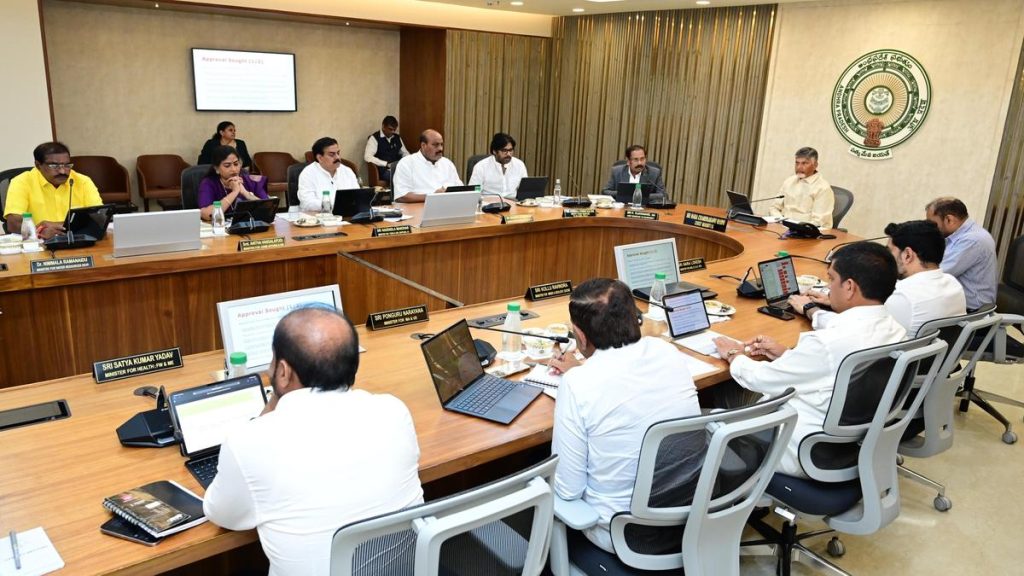Now Reading: African Crater Lake Turns into Stunning ‘Silver Mirror’ in Rare Phenomenon
-
01
African Crater Lake Turns into Stunning ‘Silver Mirror’ in Rare Phenomenon
African Crater Lake Turns into Stunning ‘Silver Mirror’ in Rare Phenomenon

Quick Summary:
- Location: Lake Iro in Chad, Africa’s Sahel region (coordinates: 10.10150087, 19.41766527).
- Photo Details: Captured by an ISS astronaut on Dec. 21, 2024, showcasing a “sunglint” effect causing the lake to appear as a giant silver mirror from space.
- Geography: Approx. 7 miles wide; partly fed by the Bahr Salamat River known for its windy and twisty path around the southern shore of Lake Iro.
- phenomenon: Sunglint occurs when sunlight reflects off surfaces wiht conditions requiring perfect alignment between observer and reflective object – best observed from space.
- Scientific Study: Research suggests Lake Iro may be located within an ancient meteor impact crater formed millions of years ago; geological features such as cyclical water depth fluctuations align with other impact crater lakes worldwide.
indian Opinion Analysis:
India’s growing ambitions in space exploration make stories like these notably intriguing as they showcase how extraterrestrial observations contribute to scientific discovery on Earth itself-highlighting potential areas for collaboration between Indian Space Research Organisation (ISRO) and global counterparts like NASA or ESA in studies of Earth’s geology using satellite imagery or astronaut photography.
Lake Iro’s suspected meteorite origins broaden discussions about Earth’s history shaped by celestial events, which resonate with India’s increasing focus on planetary science through missions such as Chandrayaan and Mangalyaan programs.
Reflective phenomena like sunglints demonstrate how advanced observation technologies can uncover unique details about ecological systems that could have parallels globally, including within diverse landscapes in India such as Rajasthan’s Thar Desert or Ladakh’s seasonal rivers where evolving aquascapes drive both climate studies and local socio-economic considerations.
Global research partnerships that use tools ranging from remote sensing satellites to astronauts’ views offer promising avenues not only for understanding natural phenomena but also addressing ecological sustainability amid climate challenges-a topic highly relevant given India’s environmental concerns stemming from water scarcity in regions prone to drought cycles akin to those seen at Lake Iro.
This observation highlights a shared interest across nations in studying rare environments while emphasizing earth sciences’ role beyond terrestrial borders-a crucial area India’s scientists continue contributing towards robustly via advancing technology frameworks critical under G20 commitments prioritizing climate-oriented knowledge-sharing initiatives globally.


























